Civil Contractors and Civil Construction Firms execute the construction of most of the structures that enclose us. These civil contract companies use multiple raw materials to convert an idea on paper to a colossal structure. Even though we are surrounded by these structures, not many of us are aware of the fact, what building contractors use them for, at what stage of construction they are put to use and how their different versions entail different uses.
Post your Requirement
Significance of Construction Materials
The building materials used by civil contractors are a prominent factor when it comes to cost, safety, sustainability and longevity of your commercial and private properties. Using the appropriate materials for the construction of projects becomes a paramount decision for building contractors as it directly affects the success of the projects. Knowledge of building materials, however, is not a gate-kept secret and homeowners, investors and real estate professionals must be aware of them to ensure that their dream home or costly project is built effectively and efficiently.
Essential Building Materials
-
TMT Bars:
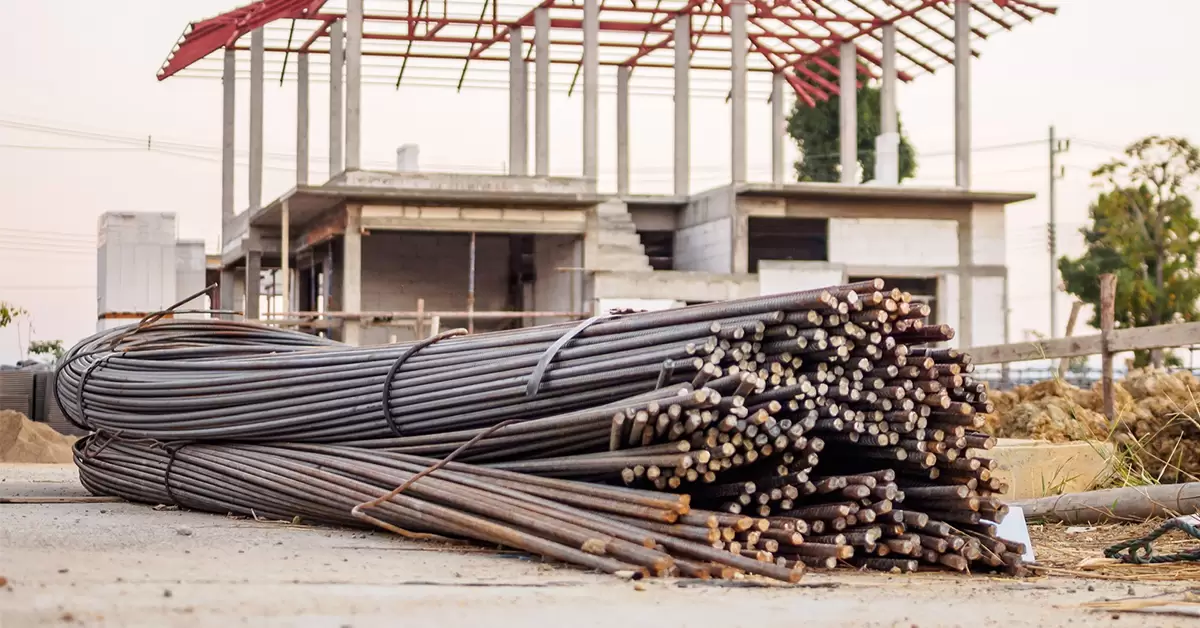
TMT which stands for Thermo Mechanically Treated, is one of the primary construction materials and the most extensively used type of steel bars. This heavy reliance on TMT bars is because of their several properties such as anti-corrosion, lightweight, ease of assembly and resistance to earthquakes.
The secret of these properties lies within the composition of the TMT bars. TMT bars are formed with a mix of Steel, Carbon and Phosphorus. This combination allows TMT bars to have better tensile strength, high thermal resistance and other properties while retaining its qualities of ease of use and cost-effectiveness.
Different grades of TMT steel bars are available, including Fe-415, Fe-500, Fe-550, and Fe-600. “Fe” stands for iron, and the number following it indicates the bar’s ductility power, which is the amount of stress required to bend the bar into different shapes. The higher the number, the higher the grade, and therefore the stronger the TMT steel bars.
The most respected sellers of TMT bars in India are SAIL, Jindal, JSW, and TATA Steel.
-
Ready Mix Concrete:
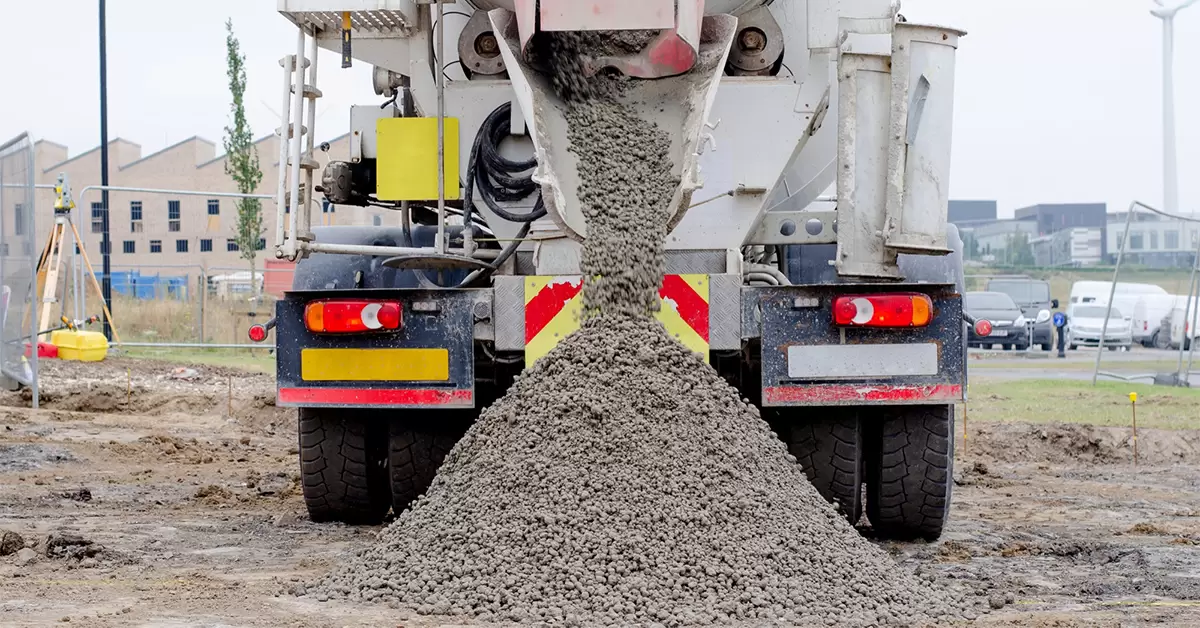
Ready mix concrete (RMC) in layman’s terms refers to concrete sent in batches for delivery from a central plant “ready to be used” instead of being mixed on the job site. It refers to concrete that is specifically manufactured in accordance with customers’ building projects, and supplied to the customer on site as a single product. It is a mixture of Portland or other cement, water and aggregates: sand, gravel, or crushed stone.
It Is Of Two Major Types:-
- With Fly Ash: This type of concrete comes added with 15% to 30% of Fly Ash. This is utilized for its properties of delayed setting times, higher consistency and less shrinkage.
- Without Fly Ash: This refers to the ready-mix concrete which is devoid of Fly Ash. It is used for its qualities of less setting time in lower temperatures, reduced effects of freeze damage and higher consistency of colour.
In addition to the presence of Fly Ash, ready-to-mix concrete is also divided per grade. Cement is graded as per their “Mix Ratio” which is the proportion of “Cement: Sand: Aggregates”.
As the grade of the Ready-Mix Concrete rises, its compressive characteristics and strength rise, which makes it suitable for different uses:-
-
M10:
- Usage: Pathways, Patio slabs and non-structural work.
- Useful For: Domestic & commercial use.
-
M15:
- Usage: Floor blinding and Pavement kerbs.
- Useful For: Domestic & Commercial use.
-
M20:
- Usage: Domestic floors and foundations (where the weight of the structure is light). Additionally useful for workshop bases, garages, driveways and internal floor slabs.
- Useful For: Domestic use.
-
M25:
- Usage: All areas for construction. Multi-purpose concrete mix, conventionally used for foundations.
- Useful For: Domestic & Commercial use.
-
M30:
- Usage: More durable than previous grades, thus is much more weather-resistant and can take heavy road traffic, which is why it’s used for roadways and pathways.
- Useful For: Commercial use.
-
M35:
- Usage: This heavy concrete mix is essentially used in commercial properties creating external walls and slabs, as well as for structural piling.
- Useful For: Commercial use.
-
M40:
- Used For: The most durable in this list, it can withstand chemical corrosion also, so is frequently utilised on farms where there is a chance of slurry corroding structures, or in septic tanks.
- Type: Commercial use.
The largest sellers of RMC in India are Ultratech, McCoy RMC, A1 RMC, etc.
-
AAC Blocks:
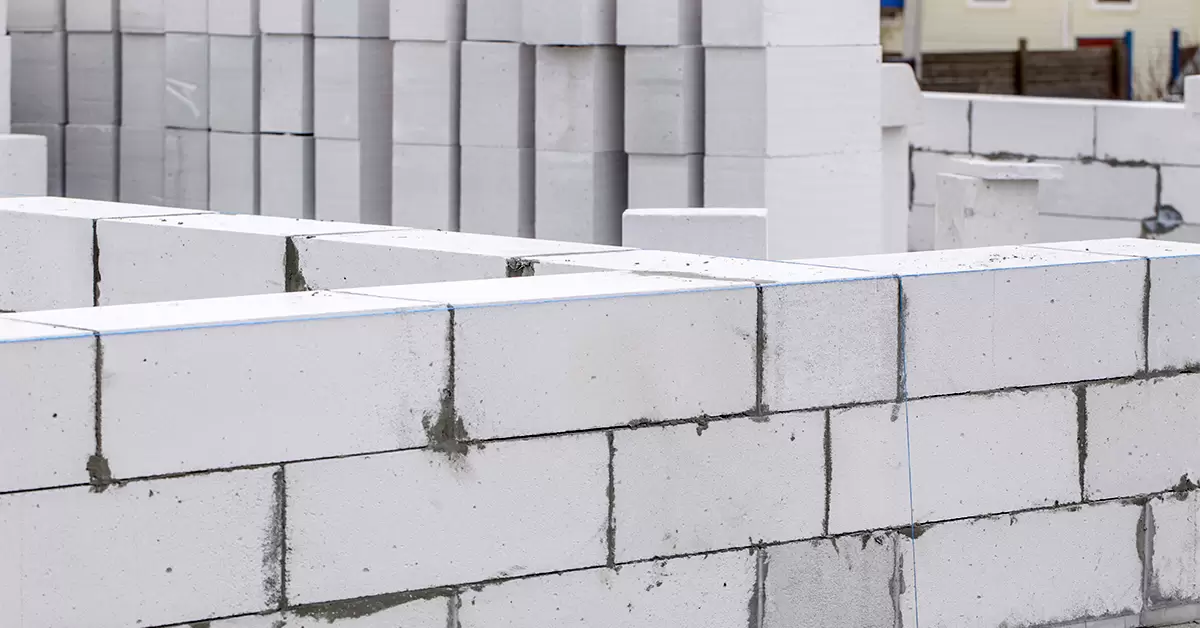
AAC stands for Autoclaved Aerated Concrete (AAC), these blocks are used for exterior and interior walls though for exterior walls, some form of finishing is essential. The low maintenance expenditure, highly insulating and lightweight qualities make it a suitable choice as a primary building material by civil contractors.
AAC Blocks Have Multiple Advantages:-
- Ease of Use: Due to the pre-fabricated nature of AAC blocks, they involve less time and effort during construction. Their lightweight allows easier transportation and decreases the time taken for construction.
- Fire Resistance: AAC blocks are built from non-combustible materials, hence, they can tolerate high levels of heat and do not produce toxic emissions.
- SoundProofing: AAC blocks have acoustic qualities as they can soundproof the structures by reducing the amount of sound that goes out or comes in. This quality makes it a great choice for the construction of hospitals, studious etc.
- Eco-Friendly: hese blocks can made up of recycled materials which reduce their impact on the environment, by reducing the usage of materials and also make the structure more sustainable.
These AAC blocks can made up of recycled materials which reduces its impact on the environment, by reducing the usage of materials and also makes the structure more sustainable.
The top brands that sell AAC blocks in India are JK Lakshmi, Magicrete, and Birla Aerocon.
-
Paving Blocks:
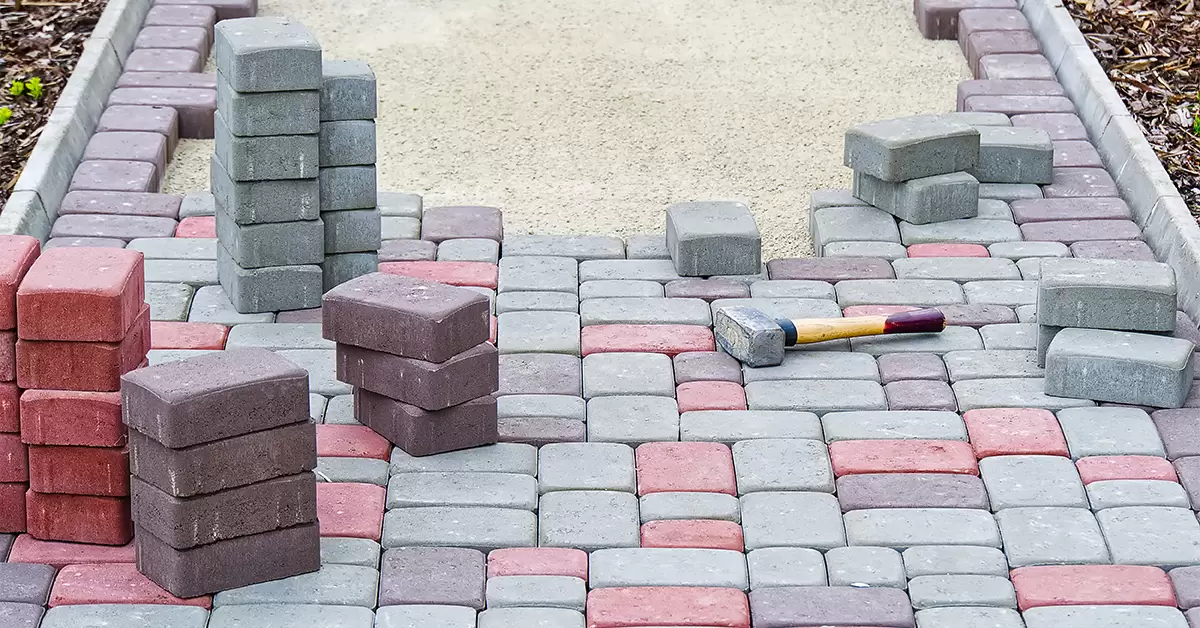
The use of Paving Blocks is an ingenious way to decorate your exterior and in unique cases your interior flooring, including walkways, pathways, corridors etc. Contemporarily, paving blocks were built out of cement and concrete, but as we move towards more sustainable construction materials, they are being out of recycled plastics to make buildings more sustainable.
It Has Multiple Advantages:-
- Aesthetic: Paving blocks help enhance the visual appeal of the walkways and pathways, improving the appearance of the property as a whole.
- Versatility: Due to the availability of several colours, designs and materials, paving blocks can be unique as per the characteristics of the property in question.
- Easy to Set Up & Repair: Setting up paving blocks does not require the presence of heavy or specialized machinery. Repairing also becomes an easy task as only a single block needs to be changed individually.
- Cost: Using economies of scale, the price of paving blocks is highly reduced due to their mass production, making it a feasible choice.
-
Cement:
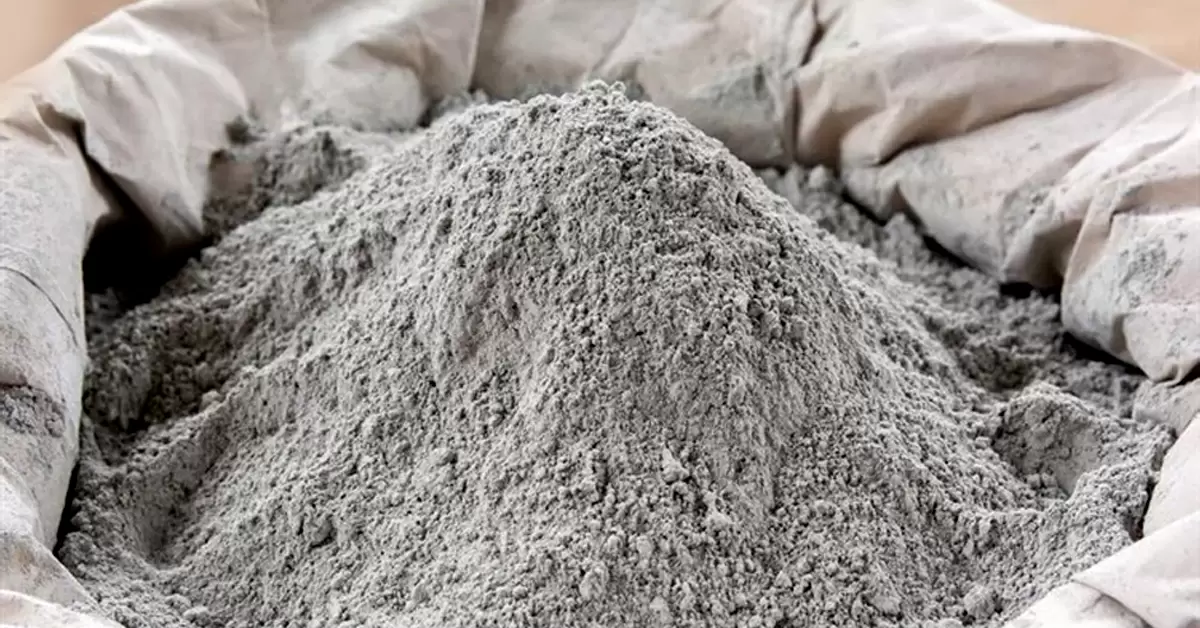
Cement is technically a binder used for construction to bind materials like sand and gravel(aggregate) and is rarely used alone. Cement when mixed with fine aggregate produces mortar for masonry, with sand and gravel produce concrete. Concrete is the most extensively used material after water as a building material and has been in use since the era of ancient Egypt.
In The World Of Construction, There Are Two Types Of Cement Used:-
-
OPC (Ordinary Portland Cement):-
- It is used for all general purposes like in the making of beams, foundations and slabs.
- It is also effective in marine construction such as docks, harbours etc. due to its corrosion-resistant properties.
- It has high compressive strengths, which makes it suitable for the construction of tall structures.
- White cement is a type of OPC that’s white instead of grey. This makes it useful in architectural projects and interior and exterior decorative projects like designing garden paths, floors, swimming pools and ornamental concrete products.
-
PPC (Portland Pozzolana Cement):-
- It is suitable for mass concrete works such as dams, large foundations etc, owing to its anti-thermal cracking and anti-heat of hydration qualities.
- It is also ideally used in the repair and restoration of pre-existing structures attributable to its resistance to chemical attacks and enhanced durability to repaired buildings.
- PPC is commonly used in masonry mortar for bricklaying and plastering due to its excellent workability and setting characteristics.
Well-known brands in this field are ACC Cement, Ambuja Cement, and Ultratech.
-
Wood:
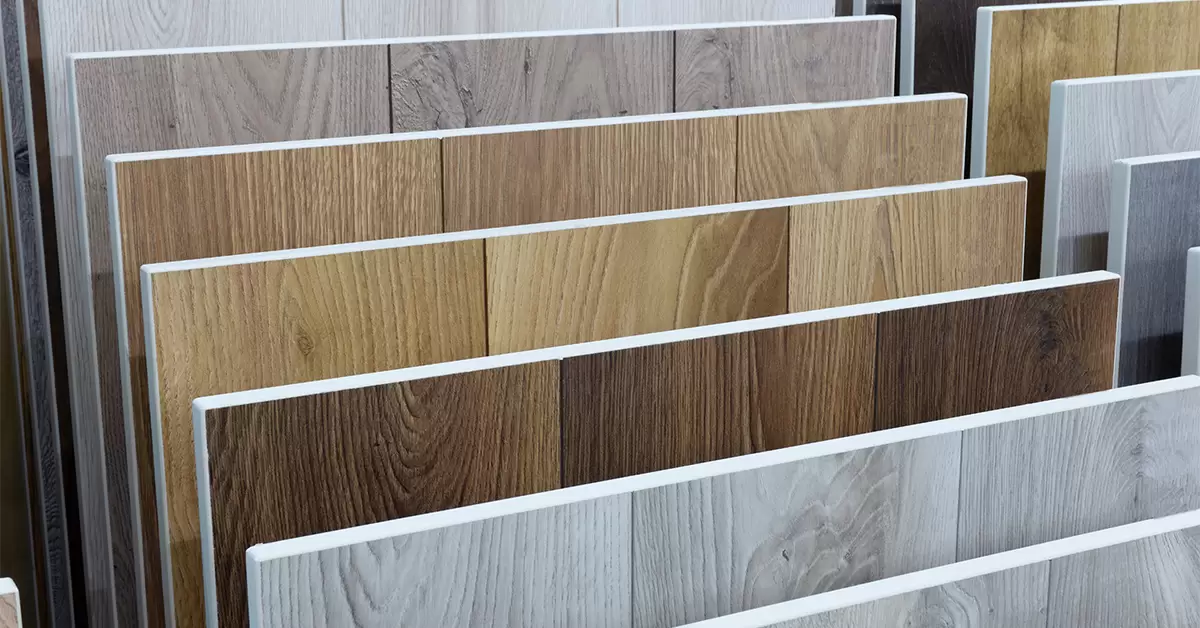
- Once the primary material in the construction of both commercial and domestic structures, wood remains one of the most extensively used materials in modern-day construction. Wood is largely classified into hardwood and softwood.
- Hardwood is typically heavier and denser than softwood and is suitable for the construction of walls, ceilings and floors. The highest possible grade of hardwood contains 83% usable material on one face and is suitable for high-quality furnishings, wood mouldings, skirting boards, architraves and internal doors.
It Is Useful For Construction Due To Its Properties Of:-
- Electricity Resistance: Wood is widely known for its property of resistance to electricity. This makes it a good choice in construction.
- Sound Absorption: The properties of sound absorption in wood make it a preferred choice of material for the construction of hospitals, studios etc.
- Visual Qualities: The finish provided by wood in wooden furniture, doors and entryways, is a sought-after effect that contract companies desire to achieve.
- Renewable and Recyclable: Wood is a renewable resource and recyclable resource. If used at a steady rate and not exploited, it can be a better choice for building material than concrete as it can be recycled into making furniture and show pieces.
- Biodegradable: The biodegradable quality of wood makes it a good choice as the material suppliers and contractors do not have to spend a fortune to dispose of the remaining produce.
- Higher Insulation: Wood provides high heat insulation which ensures that the structures thus built are more energy-efficient and comfortable.
Top wood dealers in India are JK Timber Mart, Kantilal and Sons.
In Conclusion
Building construction contractors use not only the above materials but several other products ranging from electric wires to other hardware products. The above-mentioned materials are the basic foundation of any kind of structure be it the construction of a civil project like an airport or for the construction of your very own dream home.
Basic knowledge of each of these materials can help you become an informed consumer which pays its dividends when supervising a construction project where you invest more than just your money.
McCoy Mart helps you decide and procure the materials and professionals essential for the successful construction of your projects which remain memorable for the coming decades and continue to pay dividends in terms of saving valuable investment into the construction of your dream properties.

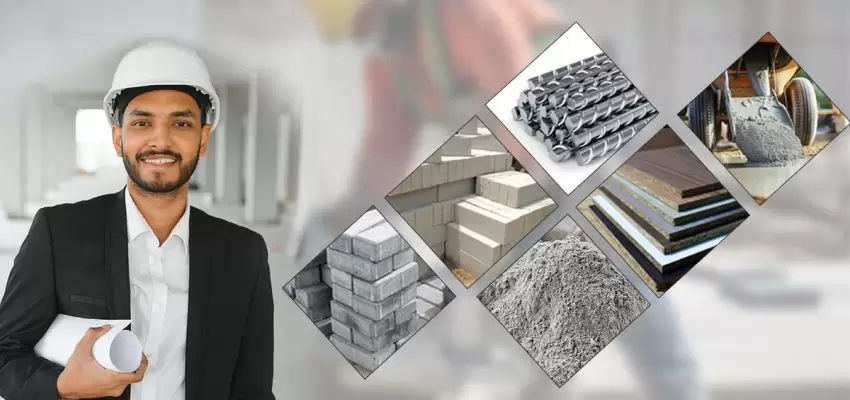
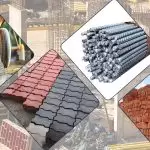
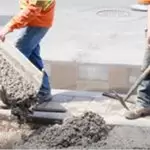
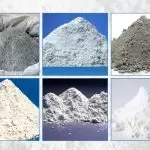
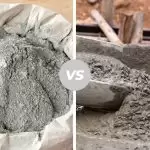

















Post A Comment